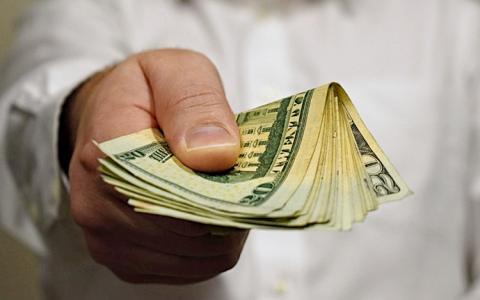
The planned third round of coronavirus stimulus checks is moving through Congress at light speed compared to the draaaaaaaaaaagged-out second batch.
Lawmakers played footsie over the last direct aid payments throughout the spring, summer and fall of 2020. And, when the money finally started arriving before New Year's, all you got was a stimulus check for a measly (to borrow former President Donald Trump's description) $600 — half the $1,200 distributed the very first time.
House Speaker Nancy Pelosi (pictured) is optimistic about getting new, $1,400 stimulus checks out very soon. Here's an update on the timing, and on your likelihood of getting the full amount.
Stimulus checks are on a fast track
To speed along President Joe Biden's $1.9 trillion dollar pandemic relief package, including the next stimulus checks, the Democrats who control Congress are using a streamlined process that could allow passage with simple majorities — meaning no Republican support.
Republicans say the president's bill is too expensive. In hopes of winning over some members of the opposing party, Democrats are considering targeting the new direct payments to people with the greatest need.
Last spring's first, $1,200 stimulus checks were largely spent on essential needs, including food and rent, the U.S. Bureau of Labor Statistics has said.
Some of the money also was used for investing, a bureau survey found, or was spent on other, unspecified things — possibly including affordable life insurance polices. Demand for life insurance has surged due to COVID.
The third stimulus checks may be more restricted, to go only to lower-income Americans, according to multiple media reports. For example, payments could phase out for individuals with incomes over $50,000, down from $75,000 for the two earlier checks.
When are you likely to see another stimulus check?
While some people might have a smaller chance of receiving another stimulus check, families may get more money this time. The last payments excluded college students and other dependents over age 16; Biden aims to fix that in the new go-round.
More than two-thirds of Americans (68%) support Biden's pandemic package, according to a Quinnipiac University poll. Congressional leaders have grown more optimistic about delivering it quickly, after a budget bill to fast-track the process passed the House and Senate last week.
Speaker Pelosi released a statement on Friday saying the hope is to wrap up work on Biden's COVID plan "before the end of February" — a timeline that could give you a fresh stimulus check in early March.
That's an improvement from an earlier remark from Senate Majority Leader Chuck Schumer, indicating it could take Congress until mid-March to pass the next stimulus checks. Under that scenario, you'd get no money in your pocket until late March, and maybe not before April.
What if you need another stimulus check immediately?
If COVID is battering your budget and you need additional cash right now, here are a few ways to tide yourself over financially until the next stimulus check comes.
-
Shrink the cost of your debt. If you’ve been using credit cards more than usual during the current crisis, you're probably piling up expensive interest. Tame your credit card debt — and make it go away more swiftly — by gathering up your balances into a single, lower-interest debt consolidation loan.
-
Shave down your insurance bills. Since many of us are driving less during the pandemic, car insurance companies have been giving price breaks. But if your auto insurer is stingy, shop around for a better policy. Plus, you might save hundreds on homeowners insurance by comparing rates to find a lower price on that coverage.
-
Refinance your mortgage and slash your payments. Mortgage rates have been lower than ever, so refinancing your existing home loan could provide big savings. Mortgage tech and data provider Black Knight says 19.4 million U.S. homeowners have the potential to cut their housing payments by an average $308 per month through a refi.
What if you may miss out on a stimulus check this time?
If you've been looking forward to a $1,400 payment but are at risk of receiving a reduced amount or no money at all under new income restrictions, here are a couple of things you can do:
-
Get your 2020 taxes in quickly. Log into a good tax software program and start working on your 2020 return, so you're ready to submit it when the IRS begins accepting returns on Feb. 12. Your eligibility for a stimulus check will be based on your most recent tax return, so if your income was pinched by the pandemic in 2020, you may have a better chance of getting a $1,400 payment.
-
Find savings to "make your own" stimulus check. Look for creative ways to save, to squeeze $1,400 out of your budget. For example, cancel streaming services and any other monthly subscriptions you're not using. Turn a hobby or your special skills and talents into a side hustle, to bring in extra income. And, download a free browser add-on that will automatically hunt for better prices and coupons whenever you shop online.
This article originally appeared on Yahoo! Finance.



